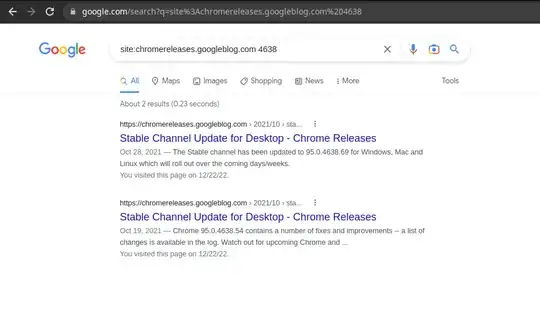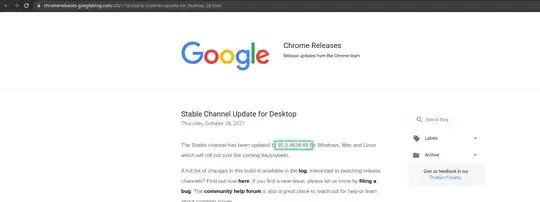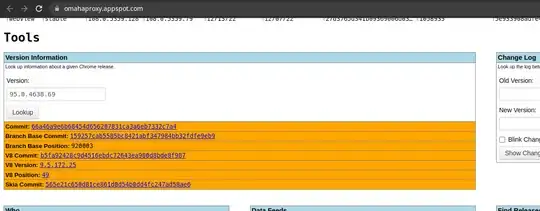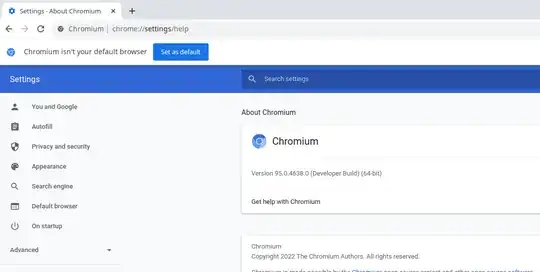It should be possible to download the semi-official build from the public Chromium sources.
For example, a process of some Chromium version 95.0.4638 files search and download (adjusted steps originally written for version 44):
Look in https://googlechromereleases.blogspot.com/search/label/Stable updates for the last time version 4638 was mentioned. There is a field which queries the general Google:


Selected one of the above results and:

Loop up that version history (specifically, 95.0.4638.69) in the Position Lookup;

In this case it returns a base position of 920003. This is the commit of where the 95 release was branched, back in September 2021:

Try searching in all required platforms (i.e. Linux, Linux x64, Windows, Windows x64, Mac etc.) on continuous builds archive - paste "920003" into the filter field at the top and wait for all the results to XHR in. If no results is shown, try incrementing or decrementing the value (i.e. 920004, 920005 etc.).
Eventually, it showed 920005 at Linux x64:

Download the required file (e.g. chrome-linux.zip).
Unzip and voilà:

Why 95.0.4638.0 instead of 95.0.4638.69? From the original steps page mentioned above:
As this build was made at 44 branch point, it does not have any commits merged in while in beta.
It's also worth to mention that www. for googleapis.com is mandatory.
For a broad example, to download the archive and run Chromium 95.0.4638.0-dev-x64:
if [ ! -f './chrome-linux/chrome' ];
then
wget -O './chrome-linux.zip' -- 'https://www.googleapis.com/download/storage/v1/b/chromium-browser-snapshots/o/Linux_x64%2F920005%2Fchrome-linux.zip?generation=1631232582939202&alt=media';
unzip './chrome-linux.zip';
fi
cd './chrome-linux';
declare tmpDirpath; # Just in case it's a local variable
tmpDirpath="$( mktemp; )";
readonly tmpDirpath;
printf -- $'Temporary User directory: '%s'\n' "$tmpDirpath";
'./chrome' --user-data-dir="$tmpDirpath";
As mentioned in the above quite broad "script", in order to have a more isolated or "portable" environment, try setting option --user-data-dir for the executable.






